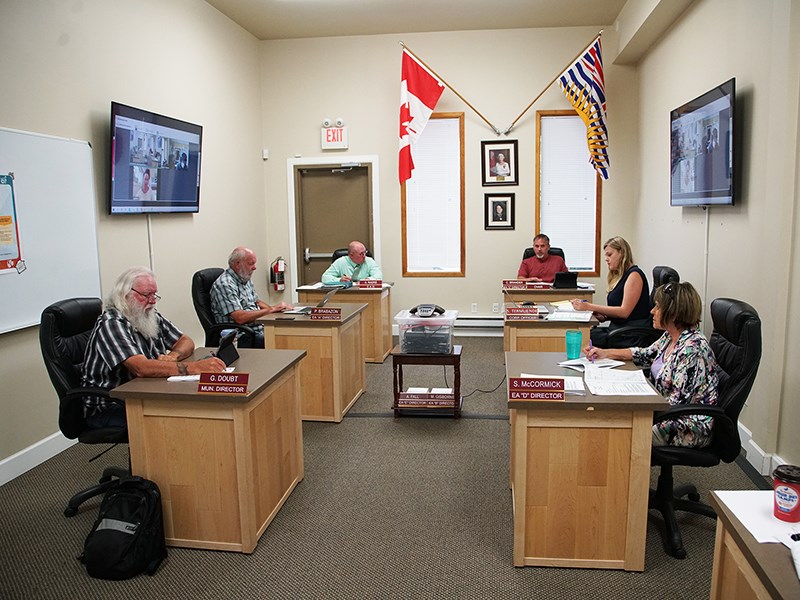qathet Regional District’s (qRD) planning committee will postpone a decision on a subdivision application on Verkerk Road in Electoral Area B that prompted several items of correspondence objecting to an easement on the property.
At the August 11 planning committee meeting, directors reviewed a recommendation that the committee recommend that the board advise the provincial ministry of transportation and infrastructure that qRD has no objection to the proposed six-lot subdivision application for the property at 8101 Verkerk Road, with three conditions. These were:
· Proof of on-site water and sewer servicing on each of the proposed lots from Vancouver Coastal Health
· The applicant provide qRD with funds in lieu of park dedication in accordance with the Local Government Act
· The applicant enter into a covenant with qRD to protect the riparian area over one of the proposed lots
Electoral Area A director Patrick Brabazon said given some concerns regarding the well outlined in the plan, he moved that the planning committee postpone the initiative to the planning committee meeting in September and request clarification from the improvement district regarding what it intends to do with the well.
Electoral Area B director Mark Gisborne said the well was one of his primary concerns. He said the other concern he has is the transportation aspect.
Gisborne said he understands the property owner’s position that they cannot squeeze a road in without making the lots smaller than 1.4 hectares, which is the minimum size for a designated rural residential lot, but they want to create a buffer.
Electoral Area C director and planning committee chair Clay Brander said Gisborne was getting away from the motion to postpone.
“I don’t think we need to go beyond that,” said Brander. “By postponing it we will be able to discuss all of these issues at that time.”
Gisborne said there was a time sensitivity issue. He said the committee should be looking at solutions other than the well.
“I do believe the transportation issue is also a valid concern based on the correspondence from the residents,” said Gisborne. “I’m looking at the plan and the official community plan and wondering if there is a potential solution to get us to something that is workable.”
Brander said at this point, the committee was just considering whether to postpone a decision on the application until the next meeting.
“We’re only making a motion to postpone at this point,” said Brander. “We’re not discussing the needs of the original report. We will get a chance to do that.”
Electoral Area D director Sandy McCormick said she wanted to ask staff if there was any time issues with regard to this application and if postponing it would create a problem.
Manager of planning services Laura Roddan said she didn’t think it was unreasonable to postpone the matter for a month.
“I have been trying to reach the ministry of transportation to discuss the concerns raised by the residents,” said Roddan. “The contact is on vacation for the next couple of weeks so a month would give us time to touch base with the improvement district and with the ministry of transportation and look at the application a little more closely in light of the concerns.”
Brander said in a month’s time the committee should have more information.
Gisborne said in speaking with the property owner, he did give a sense of urgency to try and get this handled quickly so he can move on toward focusing on his agricultural operations.
“If we do postpone it, we should at least discuss some of the other options that the property owner could potentially pursue if his original application is turned down in September,” said Gisborne. “The proposal itself, I would just like to say that in the official community plan, lands that are designated as buffer zone are not rural residential, but actually low-density residential, where the minimum lot size is one hectare, rather than 1.4 hectares.
“If the community was willing to entertain a change to our OCP, a road could potentially be installed and the lots would then create an actual buffer between the agricultural and the suburban. That is something we should consider as a possibility, changing the OCP to a smaller lot size to allow for a road between the agricultural land and the residential areas.”
Brander said he thinks staff had heard some of the concerns and they would be addressed in the following month’s report.
The planning committee voted unanimously to postpone the matter to the September meeting.



